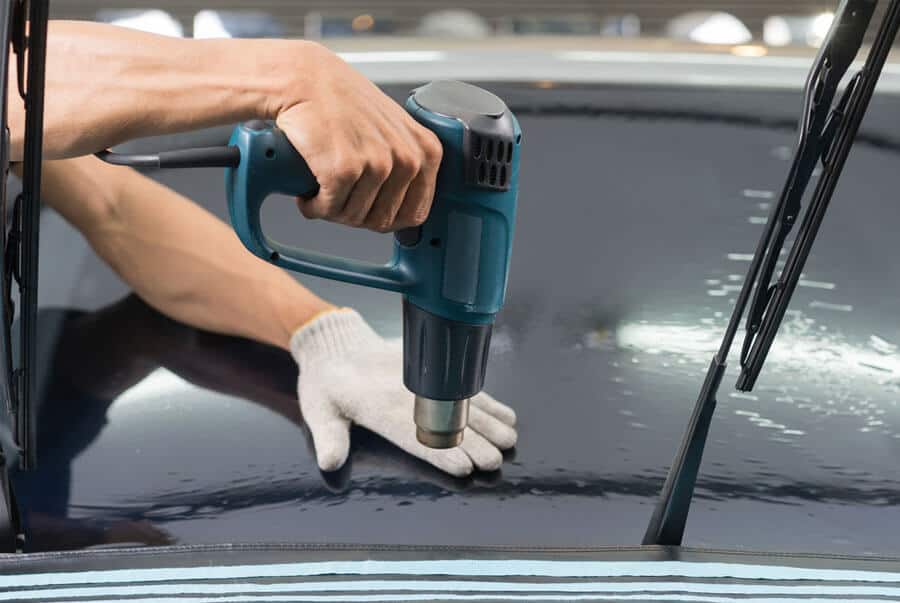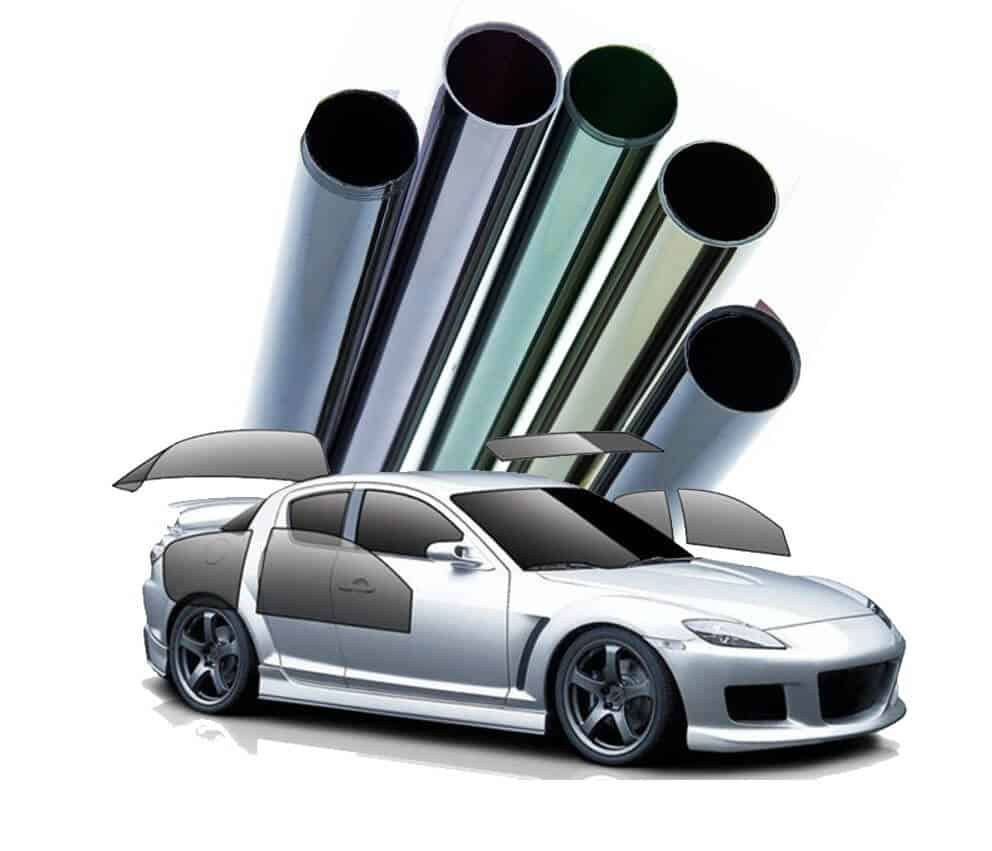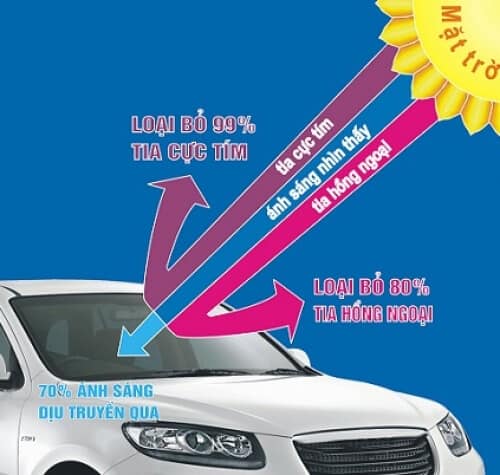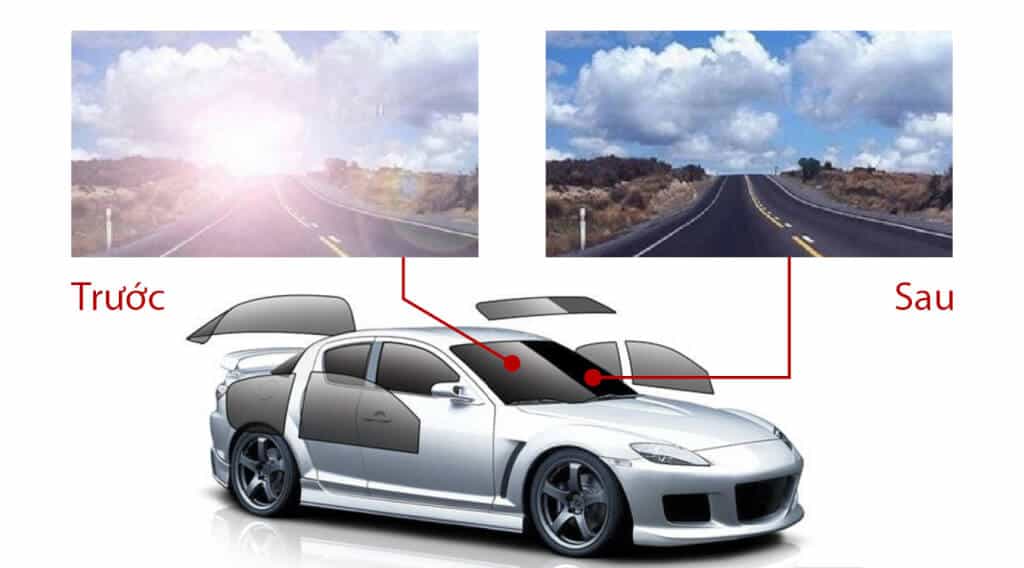Sitting in a car makes people feel comfortable because they avoid the sun and the rain. However, that does not mean that you avoid all the effects of external factors. One of them must mention infrared, ultraviolet rays. In order to minimize the impact of these factors, the film of automotive thermal insulation was born. Here, let's together Thanh Phong Auto Learn about this car insulation film!

Insulation films are originally from the USA and increasingly popular in all countries of the world. Currently, insulation films are used not only for car stickers, but also for greenhouses to avoid a growing greenhouse effect.
Car waterproofing film is a waterproof polyester used to be glued to glass. Basically this product is made up of ceramic glaze technology and spectral filtration technology. Not only that, the insulation film is also a combination of many other technologies such as irradiation, infrared ray cutting, metal coating ... Based on the amount of metal and coating technology, you can evaluate the quality and price. of the product.

Popular on the market today are the following 4 types of insulation films:

Recommended article: 5 common diseases with wipers you should know

Yes, the insulation film will not completely cover 100% of UV and AV rays in the sun but it helps reduce the temperature in the car, making your car more luxurious and discreet. With a hot tropical climate like in Vietnam, insulating films for cars to avoid the hot sun is an ideal initiative. Try insulation films for your cars to experience the difference between before and after the stickers.
Hopefully the information that Thanh Phong Auto introduced above will be useful for you. If you need insulation film for your beloved driver, you can come to Thanh Phong Auto. Thanh Phong is a place for maintenance, repair and supply of prestigious and quality auto parts. Come and experience Thanh Phong's service!
See More Great Articles At General Blog Of Thanh Phong:
Summary Of 6 Things To Consider When Car Overhauling
Cars Care Service Price Sheet At Thanh Phong Auto HCMC VietNam:
* The cars that we have mechanics: Mercedes, BMW, Audi, Lexus, Toyota, Honda, Mazda, Mitsubishi, Kia, Daewoo, Hyundai,Ford, Nissan, Volkswagen, Porsche, Chevrolet, Rand Rover, Innova, Fortuner, Vios, Fiat, Bugatti, Ferrari, Bentley, Hummer , Chrysler, Dodge, Renault, Cadillac, Volvo, Subaru, Daihatsu, Ssangyong, Roll-Royce, Peugeot, Smart Fortwo, Tobe M'car, Luxgen, Zotye, Haima, Geely, Baic, Hongqi, Cmc, Mini Cooper, Buick, Opel, Acura, Aston Martin, Vinfast, TQ Wuling.
To keep your vehicle running properly at all times, we offer a number of services that are carried out by our certified, expert auto service and repair technicians who have years of experience performing everything from oil changes to a complete engine overhaul.
LEAVE COMMENT